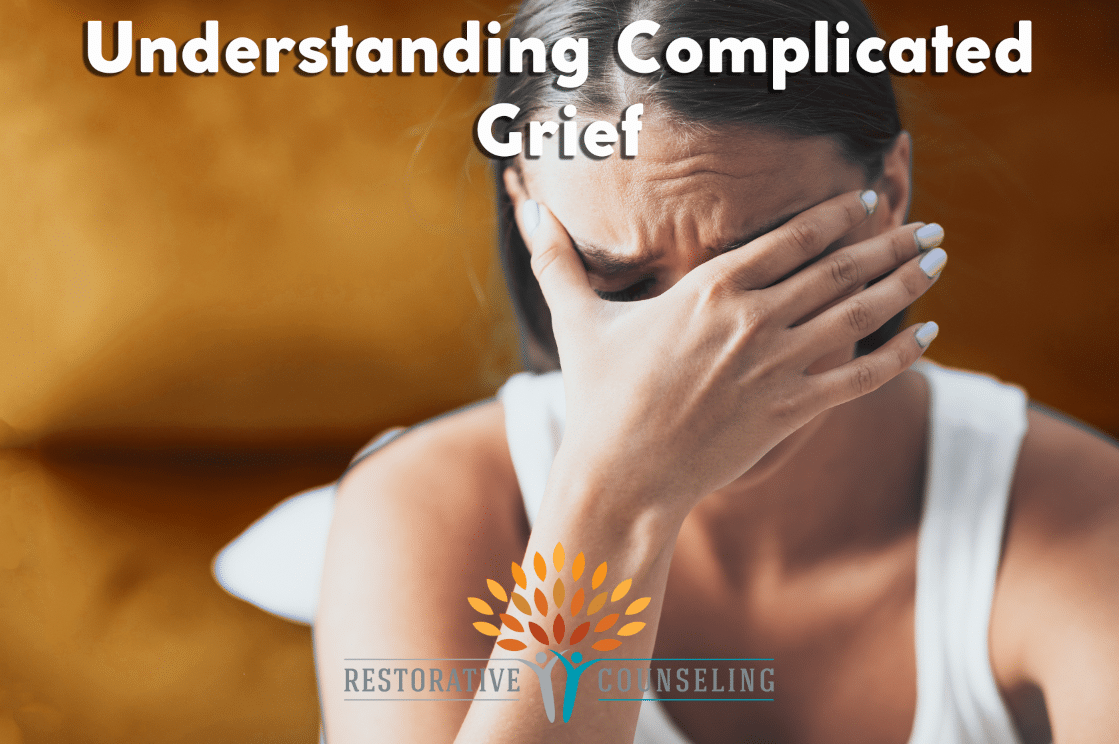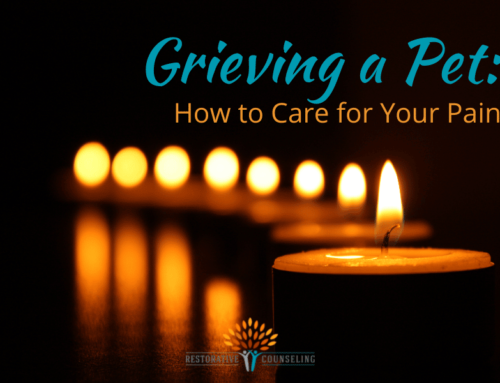Written by The Restorative Counseling Team
Quinn’s Story
Quinn lost her mother in a tragic accident. At the forefront of Quinn’s experience were feelings of disbelief, anger, sadness, longing, despair, and guilt and Quinn felt unable to contain her feelings. One day, Quinn’s father called her in tears, grieving the loss of his spouse. Quinn found a way to cope with her feelings by focusing her energy on her grieving father. She discovered that by helping her father cope with the loss, she could detach from her emotional pain.
Over time, however, Quinn felt numb. She began to long for her mother even more so than before. Quinn often avoided situations that reminded her of her mother. Family gatherings were too much of a reminder of Quinn’s loss, so she avoided them. The gatherings were just too painful. Quinn began noticing her world felt much smaller and lonesome. She could not imagine her life having any meaning without her mother. She cried herself to sleep every night.
What is Uncomplicated Grief?
Grief, in general, can be defined as a natural response to loss including the death of a loved one, losing or changing jobs, the loss of identity, relocating/moving, or a divorce.
Feelings of intense emotional pain are common while grieving. While everyone experiences and processes it differently, some common emotions include sadness, fear, guilt, despair, anger, loneliness, and disorientation.
Quinn’s experience demonstrates a type of grief called complicated grief. To understand complicated grief, it can be helpful to comprehend uncomplicated grief first. Whether a person experiences uncomplicated or complicated grief, there is no right or wrong way to grieve a loss.
Individuals may feel like they have made progress in processing their grief, only to find that the next day is harder than the day before. As time passes, individuals with uncomplicated grief may begin to notice that their feelings related to the loss are still present, only less intense. While the grief still might be there, it may start to feel like it is taking up less space. Over time, acceptance and healing may occur, and individuals are eventually able to adjust and live with their grief in a way that is meaningful to them.
Support is available during your grieving process.
Let Us Help
When Grief Becomes Complicated
With uncomplicated grief, individuals are eventually able to integrate the loss they have experienced in their lives and resume life in a meaningful way. For others, their attempt to process it becomes derailed. Complicated grief, as defined by The Columbia Center for Complicated Grief, is “a persistent form of intense grief in which maladaptive thoughts and dysfunctional behaviors are present along with continued yearning, longing and sadness and/or preoccupation with thoughts and memories of the person who died.”*
When experiencing complicated grief, feelings are experienced persistently, intensely, and without relief. Individuals may begin to feel stuck or paralyzed and unable to move forward. Without the support of a licensed mental health professional, this kind of grief can persist over time.
What are the signs of complicated grief?
- Persistent yearning and longing in response to the loss
- Intense emotional pain or sorrow including feelings of numbness, disconnectedness, anger, and guilt
- Excessive avoidance of reminders of the loss
- Difficulty with positive reminiscing
- Marked difficulty accepting the loss
- Feeling that life is meaningless
Complicated grief can be extremely difficult to experience, however, there are several ways one can cope to feel some relief.
Coping Tips:
- Utilize your supports. The idea of reaching out to supports can sometimes seem insurmountable while grieving. However, spending time with someone who cares about your well-being can help relieve some of the pain you may be experiencing. This can be simply being in the same space as them, calling, or video chatting with them.
- Take care of your body and mind by utilizing the Dialectical Behavioral Therapy (DBT) Skill, PLEASE. The mnemonic PLEASE is a way to remember that taking care of your body is taking care of your mind.
-
- PL– Treat Physical Illnesses. Humans can become vulnerable to painful emotions when physically ill. Going to the doctor to treat physical illness can decrease the likelihood that emotions will be exacerbated.
- E – Balance Eating. Mindfully consuming foods can help you remain in the present moment. Additionally, eating a balanced diet is crucial for healthy cognitive and physical states.
- A – Avoid Mood Altering Substances. Steering away from substances that alter your mood can help you be better equipped to regulate your emotions.
- S – Balance Sleep. Try to get the amount of sleep that helps you feel rested.
- E – Get Exercise. Engaging in exercise daily can improve your overall mood.
- Be gentle with yourself. Giving yourself small pieces of kindness and validation can go a long way. Try saying to yourself, “I am hurting right now, and that is okay”, or “I don’t think I can spend more than an hour socializing. I am doing what I can manage right now”.
- Seek professional help. Seeking support from a licensed mental health professional can help you understand what you are going through and how it may impact your thoughts, emotions, and behaviors. Counseling provides a way for you to better comprehend the less and address the grief, specifically.
Do These Tips Work?
Quinn was able to seek counseling to gain coping tools and aid her in processing her grief. After Quinn completed counseling, she was able to compassionately understand her complicated grief. She does feel sad from time to time when she is reminded of her mother. However, Quinn is able to experience her emotions in a way that feels and healing to her.
Restorative Counseling is Here to Help
Loss and grief are an inevitable part of life. Counseling can be an incredibly helpful and supportive tool in navigating and experiencing grief, especially when uncomplicated grief becomes complicated. Experiencing loss is one of life’s greatest challenges and you do not have to go through it alone. If you are struggling with coping with a loss, please reach out to the team at Restorative Counseling.
Reference:
The Columbia Center for Complicated Grief. (2020, July 23). Retrieved September 14, 2020, from https://complicatedgrief.columbia.edu/professionals/complicated-grief-professionals/overview/



